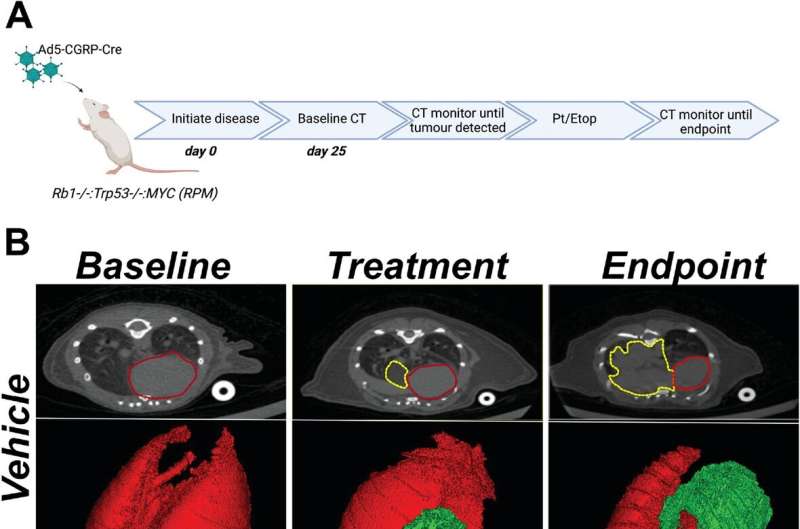This article has been reviewed according to Science X's editorial process and policies. Editors have highlighted the following attributes while ensuring the content's credibility:
fact-checked
trusted source
proofread
New treatment could increase lung cancer survival

Researchers are tackling the problem of chemoresistance in lung cancer patients with a new treatment, which offers hope of increased lung cancer survival rates.
Associate Professor Dan Gough says lung cancer is the leading cause of cancer related deaths worldwide; small cell lung cancer (SCLC), in particular, is an incredibly lethal form of lung cancer that has a mortality rate of about 95%. "There has been an urgent and unmet need to identify new drugs that will improve the outcome for these patients," he said.
SCLC patients typically respond to front line platinum-based chemotherapy, but almost always relapse with drug resistant disease.
"That leaves very few treatment options, so anything that can reduce chemoresistance, or effectively treat recurrent disease will make a huge difference to lung cancer survival rates," he said.
"Our study, published in the Journal of Experimental & Clinical Cancer Research, has identified a new drug that is very effective against relapsed lung cancer offering a new hope to these patients. [We] developed models of resistance and performed drug screening to identify new agents," Gough said. "We were able to show that a novel compound Fimepinostat is incredibly effective and indeed it doubles lung cancer survival time."
Fimepinostat has been used in clinical trials for other cancers, so the way is clear to use it in trials for SCLC. Initial discussions have been held with the manufacturer of the drug about clinical trial design for this agent in small cell lung cancer.
More information: Jasmine Chen et al, MYC drives platinum resistant SCLC that is overcome by the dual PI3K-HDAC inhibitor fimepinostat, Journal of Experimental & Clinical Cancer Research (2023). DOI: 10.1186/s13046-023-02678-1





















